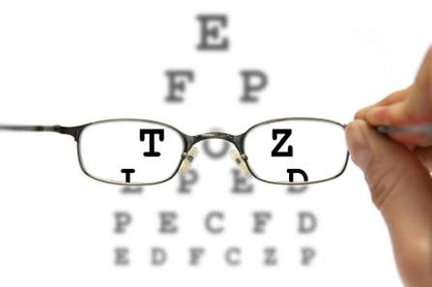all of the selves we Have ever been
 My vision is changing with age. From time to time I come across lists of “notable failures,” people who suffered a lack of success early in life or career and later rose to fame and fortune. I know these stories are intended to inspire, but sometimes they mislead. The stories do not reflect the entire reality of a person’s life. Sometimes these stories conceal important truths or reduce the significance of the journey making the rest of us feel like losers. Bill Gates is someone whose name frequently appears on these lists of notable failures. But his dropping out of Harvard does not imply failure at any level. He was never a failure. He was always brilliant, well-educated, and well-supported. He simply changed directions and chose to pick up speed toward his destination. Bill Gates didn’t need Harvard to get where he was going. Is it un-American to say so? I have lived among the poor and often brokenhearted for most of my life. It has been a rich experience. I’ve known brave children disfigured by terrible abuse, individuals who survived the concentration camps of the Holocaust, veterans of horrific wars, refugees from the tyranny of Stalin, people living with painful cancers and neurodegenerative diseases—all remarkable people who have changed my view of success. I am intrigued by self-help books. I love story. I am eager to understand where someone comes from, how they got where they are. I am hopeful to learn from their struggles and their strategies, but I am also aware that we are each so different that the same ten point plan that worked for one may not work for others. These success stories often downplay the interaction of talent with luck and timing. If you were born during the Great Depression, survival alone might be a mighty success. If you are an aspiring writer who happens to sit next to a well-respected agent during a flight from New York to London, good things might come from that happenstance. If you are the son of a president, you might have a greater chance of becoming president yourself. We can’t always tell what’s in people by looking at them though we make important decisions about them based on a glance. I think of the story of two veterans. Their lives came together on a battlefield. One was down and taking enemy fire. The other soldier swooped in and rescued the downed soldier. The rescued soldier made a career in the military rising to the highest ranks at the Pentagon. The rescuer is homeless. Which one is a success? The same story and the same circumstances leave them with two different outcomes. If you save someone’s life, can you ever be an utter failure? If you save someone’s life and that life goes on to achieve great success, are you not part of the success story, too? Most of us live humble lives. We won’t be getting book deals to tell our stories. Because of our cultural measuring stick, we don’t always understand that we have succeeded. We have our own failures, but even those failures are often less than “notable”--
My vision is changing with age. I think I see more clearly now.
0 Comments
 Ever on the lookout for the express train to health and wellness as I age, I read an article reporting that jumping twenty times twice a day can improve bone health in seniors. Wow! That sounds easy. I walk every day, stretch a few times a week, do some light weights. How hard can it be to jump? I wait for the neighbor in the apartment below to pull out of the parking lot, and I head for the back bedroom. I ponder for a few minutes. What did the author mean exactly by “jumping?” Is that just plain old up and down? Jumping rope? Jumping on something? Jumping off? Realizing I’m making this complicated enough to talk myself into giving up before I even begin (which explains why I am always on the lookout for the express train), I settle on the standard, time-tested jumping jack. How many of those have I done in my life? Sounds of Robert Preston, the Music Man, singing the 1962 Youth Fitness Song and visions of high school gym class come to mind: “…clap and jump and stride, known as the jumping-jack far and wide…” Yes, sir! Go, you chicken fat, go! I’m all in… I take the first jump and immediately realize this is much harder than it sounds. My body feels dead and heavy like a wrecking ball. By the third jump I can feel my heart racing and hear it pounding in my ears. I wonder if the neighbors will be calling to complain. The window blinds vibrate, and stuff begins to shift on the shelves. I enter into negotiations with myself, maybe I’ll start with ten today. By five I’ve called out my inner drill sergeant, and I’m shouting at myself, don’t be a loser! The intimidated new recruit in me is wondering if it’s possible for my knees to end up where my hips used to be. I realize that if my leg bones don’t crumble and I continue with this, I’m definitely going to need an iron support bra. I deride myself onward, and I make it to ten. I’ve worked up a sweat, and I realize this takes some balance. My mantra becomes: Don’t fall. Don’t fall… How will I explain my injuries to the emergency squad? My eyeglasses flop up and down striking my forehead and slapping my nose. My sweatpants are sliding down my hips. I’m working up an appetite. By fifteen I re-open negotiations—maybe I’ll do twenty jumps once a day—just for starters. Eighteen…nineteen…twenty. Yahoo! Everyone sing: Go, you chicken fat, go! I plop in the recliner. Back to pondering. When was the last time I jumped? I try to think of why it is I haven’t jumped, but then why DO people jump? Except for basketball stars and gymnasts, I just can’t picture it. No wonder adult bones are crumbling. And yet, I feel strangely invigorated and a little proud. I laugh at myself and my new definition of success. I chuckle at my memories of gym class and remind myself to call my best friend from high school. It will end up a long and hilarious conversation as it usually does when we get to remembering such things. Why do people jump? Why, for joy, of course. People jump for joy! I think I will try this again tomorrow. Go, you chicken fat, go! This essay first appeared in the New Hampshire Senior Beacon, November 2019. |
AuthorLilli-ann Buffin Archives
April 2024
Categories
All
|
 RSS Feed
RSS Feed